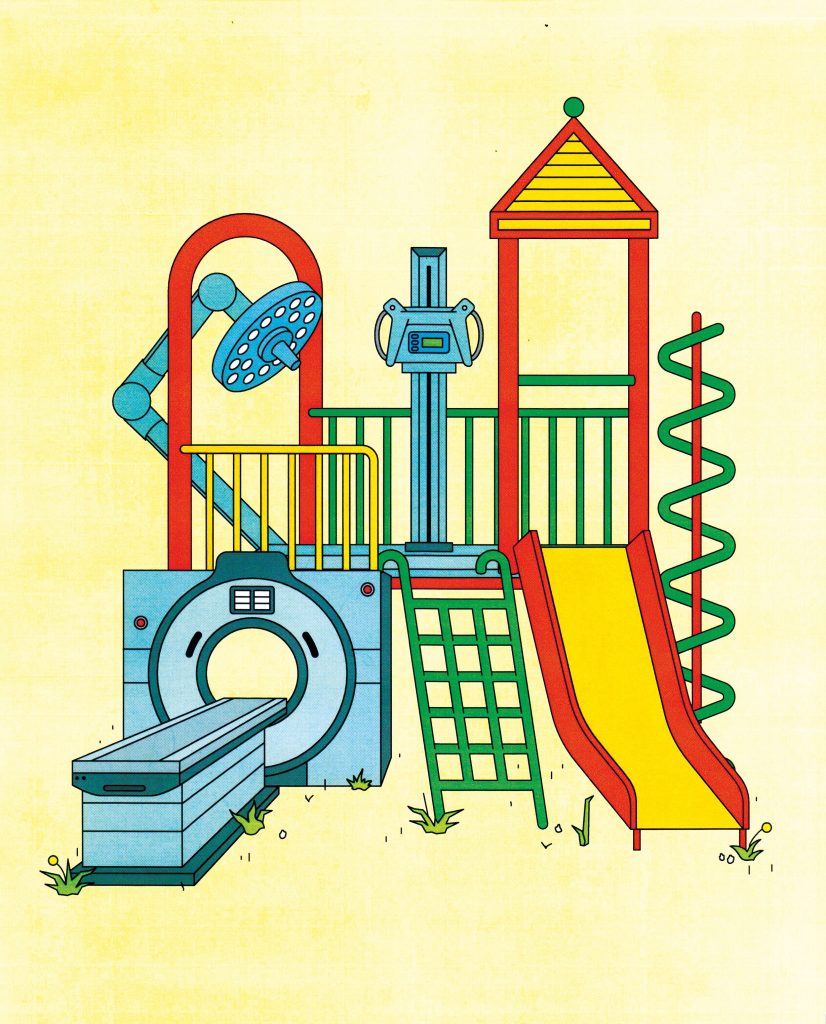This idea must die: Paediatrics is about jabs, broken arms and nosebleeds
Professor David Rowitch explains why paediatrics is about lifelong disease prevention and mitigation.

I was recently at a disease prevention conference where a geriatrician referred to an ‘early-intervention’ project – early intervention here meaning ‘middle-aged people’. I raised my hand and said: “I’m a paediatrician, so middle-aged doesn’t seem like early intervention to me!”
Beginning disease prevention in middle age is not just closing the stable door after the horse has bolted; those horses have left the field and they’re not coming back. If we want to prevent disease, we need to find its very first origins and intervene a lot earlier. We need to get rid of the artificial divide between child and adult medicine, and think differently about how mental and physical health interact and play out across our lifetimes.
The definition of ‘paediatrics’ is far wider than giving jabs and the care of younger children that most people associate with the word. In fact, the new definition of paediatric care, as set out in NHS England’s 2019 Long Term Plan, is a service that provides for those aged up to 25. Disease, after all, doesn’t just stop when you get to 16 or 18 – and it doesn’t just start when you reach middle age.
Take mental health problems, identified by the World Health Organization (WHO) as a major global challenge. According to WHO, half of all mental illnesses begin by the age of 14, and three-quarters by a person’s mid-20s. Mental illness can affect the rest of a person’s life, or, indeed, end it prematurely – globally, suicide is the second biggest cause of death among 15- to 29-year olds. That speaks to not just the origins but also the severity of mental health conditions in that age range. Perhaps a paediatrician of the future will be able to prevent anxiety and depression in an adult by starting a psychological intervention much earlier in a child who we know is at risk.
Nutrition is another area where early intervention can have lifelong results. A recent study found that introducing more vegetables into the diet of schoolchildren up to the age of five meant that they were less likely to become obese. But the same intervention done in older children didn’t show the same benefit. Behaviourally, younger children are more malleable and better at adopting healthy food habits.
Likewise, there is evidence that your risk of conditions such as cardiovascular disease, high blood pressure and diabetes in later life could be raised by what happens to you even before you are born. One hypothesis states that stresses in the womb (for example, because of severe maternal diabetes) or because of preterm birth could cause chemical (epigenetic) changes in a gene. These changes could ‘turn on’ or ‘turn off’ a process, thus setting a lifelong chain of adverse health events in motion.
At the moment, healthcare systems are reactive. The view is: ‘if it ain’t broke, don’t fix it’ – only when we obviously ‘break’ down do we go to the doctor. However, it’s likely that onset of symptoms of a disease comes many years or even decades after the disease process started.
If we want to promote a different life trajectory, where people are healthier for longer, we need nothing less than a healthcare paradigm shift from reactive medicine to preventive medicine, and the magnifying glass needs to shift to a much earlier timeframe. If so, we could identify the origins of disease in time to build resilience and prevent a health risk from becoming a disease.
Perhaps, in the future, we may not distinguish between ‘paediatricians’ and ‘adult doctors’ at all. There will simply be ‘doctors’ who look to treating disease at the root. It falls to paediatrics to systematise this new paradigm and get it right in children and young people, capturing data in the long term to show that the best way of treating an adult is by treating the child.
There are multiple ways in which this approach could play out, putting it in the realm of academic research. The concept needs to be developed in concert with medical practice that takes a holistic approach to the care of body and mind. And, I am pleased to say this is just what is happening with the building of the new Cambridge Children’s Hospital, a unique partnership between the University and the NHS, treating children in a whole new way for the adults they will become.
David Rowitch is Professor of Paediatrics and Academic Lead, NHS Cambridge Children’s Hospital.



